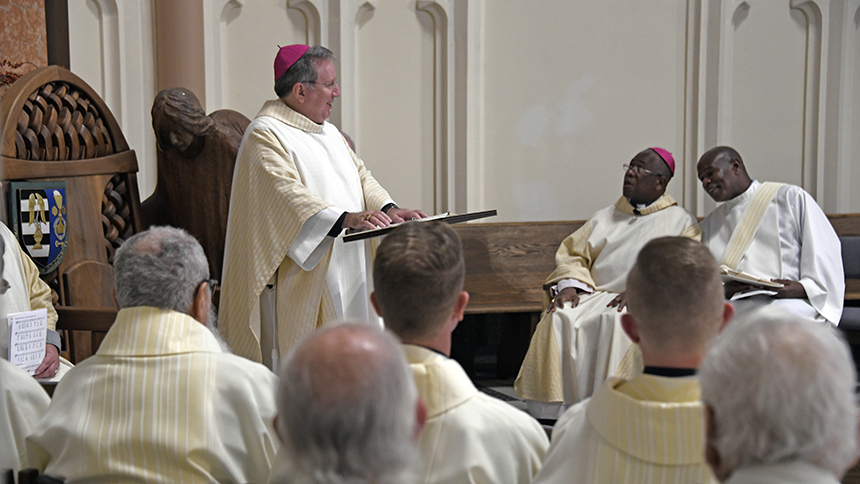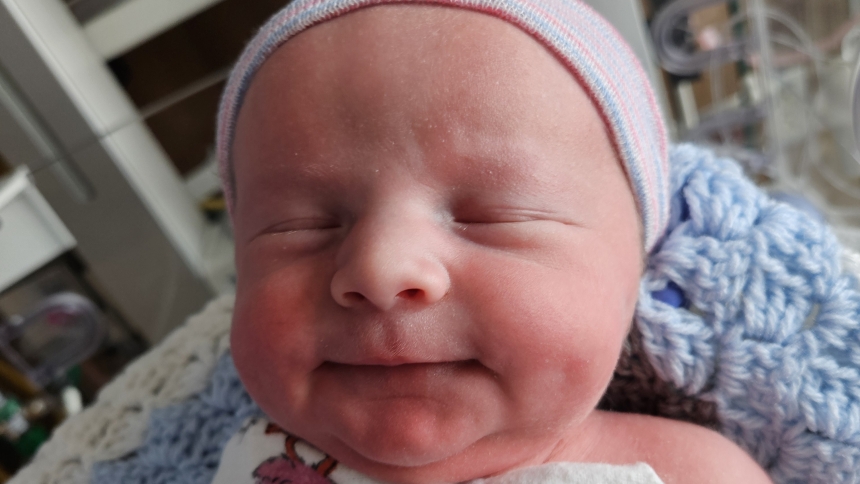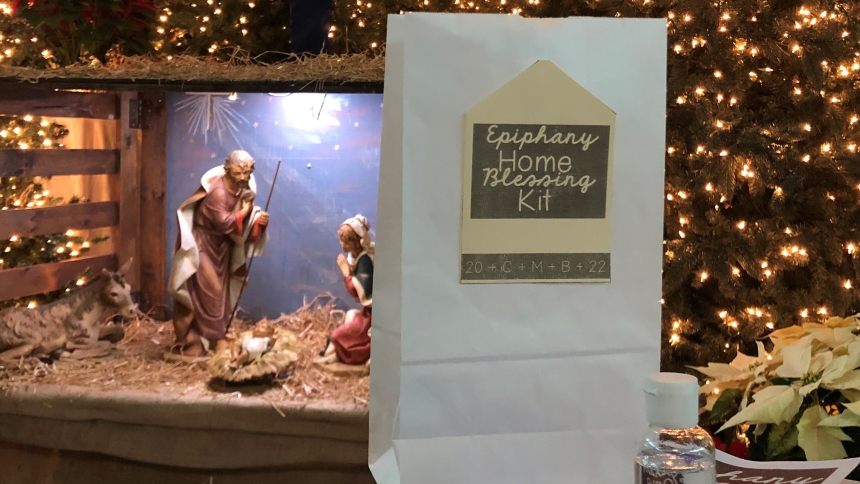
The history of the deanery structure can be traced back to St. Charles Borromeo (1538-1584). The Archbishop of Milan looked at his Catholic diocese and thought it might be helpful if priests could not only report directly to him, but also be organized into smaller groups that could support each other and share common pastoral actions.
“That tradition has continued and is found in the current Code of Canon Law which really gives the bishop the opportunity to extend his pastoral care in regional groupings that would make sense having some commonality as the bishop would seek to serve the faithful of a particular area,” explained Bishop Robert J. McClory.
The Diocese of Gary is organized into four geographic locations – Gary/North Lake, South Lake, Porter and LaPorte/Starke deaneries. Each of these areas is overseen by a priest serving in the role of a dean. The dean, which is appointed by the bishop, customarily serves a five-year term, but the position is renewable.
“While we think of them primarily serving the priests and the faithful within the deanery itself, we also have them because of their expertise in that area, (to) also weigh in on matters of general importance in the diocese,” said Bishop McClory.
He continued, “A dean can really help to set the tone within their deanery. and I also find that deans are very good about just keeping me apprised about the pulse of what’s going on in their deanery, (and offer insight about) ways they can be helpful and that I can help them.”
Father Doug Mayer received his appointment in 2017 and said as the Dean of Porter County, the most frequent task is to facilitate the gathering of the priests in the county on a regular basis (often monthly), for “fraternity, to discuss how parish ministry is flourishing, to discuss new initiatives, to coordinate activities such as communal penance services in Lent and Advent. They also gather to reflect on issues that come from the bishop or from diocesan Chancery presenters. Annually, the dean is to visit all of the priests in the deanery to inquire how their priestly life and ministry is proceeding.”
A dean is also to inquire if a priest would like or would be open to another pastoral assignment to assist the bishop and the Personnel Board in meeting the needs of the pastoral care of the people of God and to find out if any of the priests reaching the age of retirement wish to ask for senior status. Deans can be called upon by the faithful to act in matters requiring conciliation in priest-priest or priest-lay concerns. They also serve on the Priest Council as an ex-officio member, the Personnel Board and as a Diocesan Consultor to the Bishop.
“I enjoy visiting annually with the priests and hearing about their parish ministry and challenges,” said Father Mayer. “As I move throughout the deanery, for these visits the personal one on one is a special time to listen, affirm and share the joys and struggles of my brothers serving God's people.”
He added that periodically he is asked to meet with principals and directors of religious education to affirm and listen to them in their pastoral role. As the dean, he was also asked to attend and participate on the Diocesan Pastoral Council.
“Attending those gatherings with the lay faithful broadens my appreciation of the role of collaboration in the mission of our Lord in the Diocese of Gary and in our Porter County Deanery,” he said.
Bishop McClory gives credit to the previous shepherds of the Diocese of Gary for creating what he called is a strong deanery model. He stated that while he enjoys parish visitations and will always remain available to the faithful, he acknowledges it is helpful to have deaneries with established deans that help him serve the people within the diocese better.
A dean, according to Bishop McClory, should be “someone who is a good listener, who is respected by his brother priests, someone who is respected for his leadership ability and is willing to have a spirit of corporation with the priest and lay faithful in the deanery – and also someone who has a passion to serve the people of God.”
“Upon my arrival I was greatly blessed by the deans that were in place,” said the bishop. “We looked at the various terms and some of our deans were either coming to the conclusion of that or had served well beyond those standard number of years.”
Father Mayer continues to serve as Dean of the Porter Deanery and Father David Kime remains Dean of LaPorte/Starke Deanery, but as of Aug. 1, the other two deaneries in the diocese have new priests at the head of their geographic regions. Father James Wozniak was appointed Dean of South Lake Deanery (succeeding Father Michael Yadron) and Father Jeffrey Burton was appointed Dean of North Lake Deanery (succeeding Father Charles Mosely).
Bishop McClory said it was helpful for him to be in the Diocese of Gary for several years, since his installation as the fifth Bishop of Gary in 2020, before considering any revisions to the deans. As he began the process of appointing two new deans, he consulted with the current deans to see if they had ideas about those who might be well suited to succeed them and also held private discussions with other priests and key leaders.
“It really was a question of some terms being up or having been timely for someone new to come on based on the number of years, so I engaged in some conversations and received some input,” said Bishop McClory.
Father Wozniak admits he never really wanted or expected to be offered the type of responsibility that comes with being a dean. Even as he met with the bishop to discuss the position, the pastor of St. Matthias in Crown Point wondered if there were other priests more qualified. After some discernment, he said he felt God tugging at his heart to be generous. So, he said “yes” to the bishop’s invitation.
Father Wozniak plans to be present for the priests in his deanery, first and foremost, stating he wants to support them in whatever way he can. He explained he wants all the priests to feel valued, respected, cherished and appreciated. By supporting the priests, he believes the parishes will flourish.
“We have some incredible priests in our diocese, and of course, in the South Lake Deanery, and I believe they do incredible things and will continue to do so,” he said.
As to the particular characteristics of the South Lake Deanery, Father Wozniak said it has some of the largest parishes in the diocese “with greatness in each – some have Catholic schools, some have great outreach to those who are in need, and some have a spirit of generosity such as parish volunteering.”
Father Burton is a native of the North Lake Deanery, raised in Portage but a native son of Assumption of the Blessed Virgin Mary in New Chicago. His great-grandparents came from Poland and were among the families who established the parish in 1917.
“Aside from assisting the bishop through the College of Consultors and the Priest Personnel Board, the greatest role of a dean, in my view, is to be a bridge-builder among priests,” he said. “I’m looking forward to regularly meeting with my brother priests in the North Lake Deanery, sharing the good things happening in our communities and helping one another through the challenges, which are many.”
The administrator of St. John Bosco and St. Joseph in Hammond, believes one gift he has to offer is that of a catalyst “because that changes the lens through which we see things.”
“Being a 40-year-old priest, I’m playing the long game, so my focus is really on building disciples, because that’s what is going to give the Church a bright future,” he said. “If we build disciples, we won’t have to worry so much about the gas bill. For us to build that next generation, we as priests have to work together, we have to share best practices, we have to pool our strengths, we have to communicate.”
Father Burton said one of the most immediate challenges is that many priests are rapidly moving toward retirement age and those who remain are often celebrating four Masses every Sunday, many in multiple locations. While that keeps campuses open, he said it can have a detrimental effect on their ability to be present to the people of the parish.
“Building Christ-centered relationships is so vital to the mission, and it takes time, and it means being fully present to our people,” he said. “I know that every time I spend a day or two with our Bishop Noll juniors and seniors on retreat, I see more letterman’s jackets in the pews the next Sunday.”
Father Burton continued by saying there are a lot of diverse gifts in North Lake, where the emerging church “is young, it’s vibrant, the devotional life of our Hispanic population is absolutely inspiring, and we have a population that isn’t afraid to roll up its sleeves.”
Bishop McClory is grateful that there are many priests in the Diocese of Gary that are willing to extend themselves and realizes it is a significant responsibility for a priest to serve as a dean. He said it is important to note that a priest could serve in the role of a dean and then after some time be asked to serve again.
One of the blessings of the Diocese of Gary the bishop sees is that even though the diocese has many Catholics and many priests, they are all geographically densely packed. He feels the diocese's priests, in general, know each other better because of that strength of proximity.
“I have found our deans to be very pastorally wise, and to know our priests well, and to give me very good input," Bishop McClory said.


